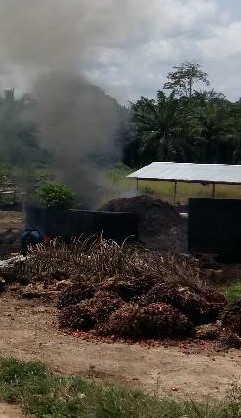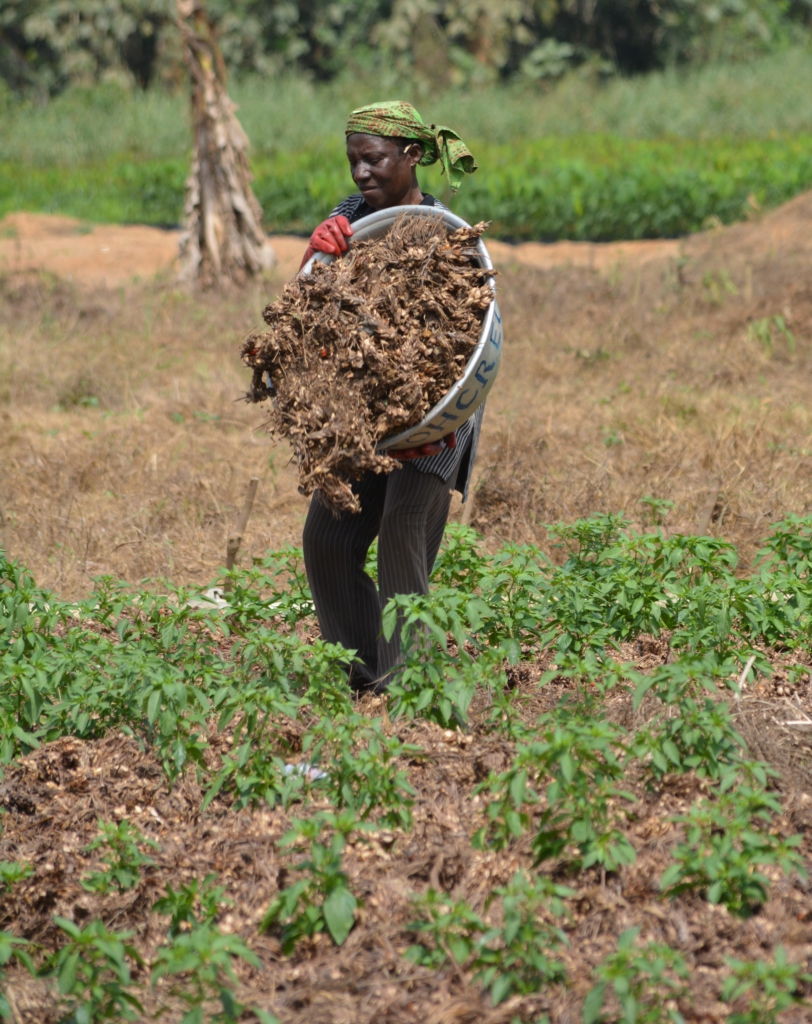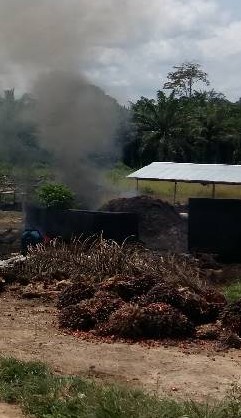A new research by the University of Ghana has shown that using oil palm waste on vegetable farms could double yield and at the same time help fight climate change.
The increased yield will increase farmers’ income and create thousands of jobs in rural areas, thereby alleviating poverty.
“Poverty, malnutrition, and unemployment are very high in rural Ghana. The oil palm waste– the material left after taking out palm fruits from bunches—is right at their doorstep in large quantities, and our research shows the waste could give these people hope for a better future,” says Dr. Eric Oppong Danso, who’s leading the research at the University of Ghana’s Forest and Horticultural Crops Research Centre.
Huge amounts of oil palm waste are produced in oil palm plantations in Ghana. Every day, around 300 tonnes of this waste is produced, and usually it is burned off, thereby worsening climate change. But instead of being burned off, the waste can be used as organic fertilizer on vegetable farms to increase yield and mitigate emissions from uncontrolled burning.

“The vegetable market in Ghana is growing at over 10% per year, with the potential to employ thousands of rural farmers and help alleviate poverty. However, declining soil fertility will make it increasingly difficult to realize this potential without replenishing soil nutrients” Dr. Oppong Danso, explained.
The researchers found that by throwing just 30 kg of the oil palm waste on eggplant fields, they could increase the yield from 60 tonnes per hectare to 140 tonnes per hectare. This was shown at an experiment conducted in the Okumaning village of eastern Ghana.
“This means that farmers can have a better income and livelihood, and at the same time, more jobs will be created right from the farm, through the market, to the dining table," Dr. Oppong Danso emphasized.

Vegetables have higher nutritional benefits compared with what is present in cassava, maize, and other everyday foods consumed in Ghana, but yields are very low due to low soil quality. By mobilizing Ghana’s largely unused oil palm waste, vegetable yields could be doubled and thereby help fight malnutrition and hunger in Ghana.
Latest Stories
-
Vola Money launches Remittance-as-a- Service platform to support global money transfers
3 minutes -
Asante Gold Chirano Limited awards 31 tertiary scholarships to brilliant but needy students
7 minutes -
National FMCG Summit and Awards 2025 ignites future of consumer goods
13 minutes -
AUCB and HAEC host innovative 2025 Capstone Projects
15 minutes -
GCYE launches National Business Agenda to tackle youth and women’s economic exclusion
16 minutes -
Government committed to stabilising cedi at GH¢10 to dollar – Seth Terkper
19 minutes -
Elder Abuse Awareness: Foundation advocates implementation of National Aging Policy to safeguard rights the elderly
21 minutes -
Real Madrid eye summer move for Ghanaian defender Oscar Oppong
24 minutes -
Ghana validates first National E-commerce Strategy
34 minutes -
Dagbon overlord applauds Mahama’s Code of Conduct for his appointees
35 minutes -
You’ve my undivided support in transforming Ghana – Yaa-Na tells Mahama
38 minutes -
Here’s the list of 12 suspects to be charged over GH₵548m NSS ghost names scandal
51 minutes -
Airwave Apocalypse or Political Performance? A Frequency of Suspicion
56 minutes -
Abstinence education alone can’t reduce alarming teenage pregnancy rate – CSOs
60 minutes -
A/R: Duase drivers block road in protest arrest of drivers charging unapproved fares
1 hour

